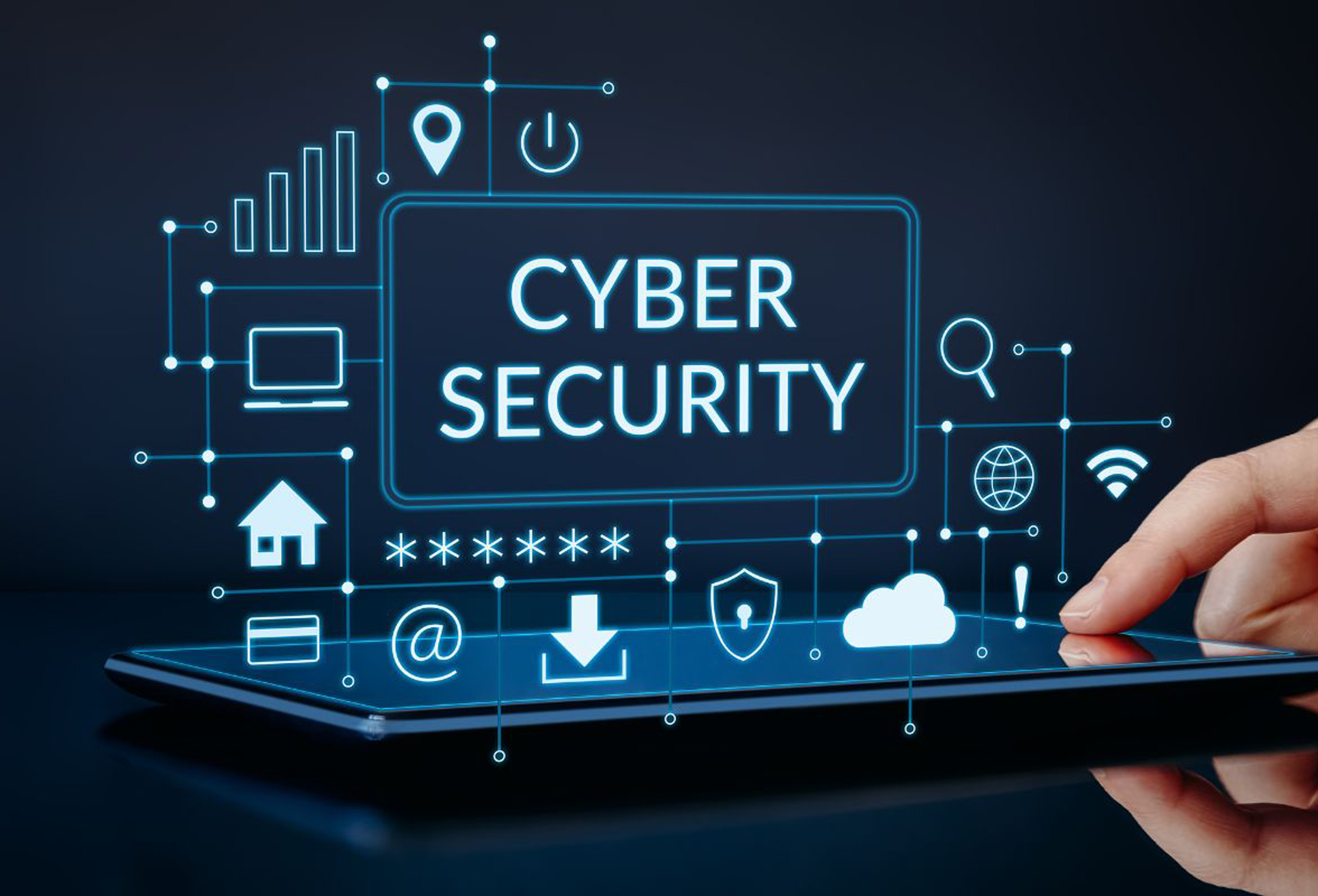As technology progresses, the threat of cybercrime also increases. The hospitality industry places great importance on maintaining cybersecurity due to the sensitive nature of customer data, financial transactions, and interconnected systems. Hotels possess a wealth of confidential guest information that can be targeted by cybercriminals seeking to exploit systems and gain access to identities, passwords, and financial resources.
The Hospitality Sector Faces Significant Vulnerability
According to a current study conducted by Accenture, it has been revealed that out of all the cyberattacks, only five industries are responsible for over 60% of them. The travel and hospitality industry stands as one of these five, with around 9% of cyberattacks specifically targeting this sector. Undoubtedly, data holds immense significance for companies operating in this field. A breach in data security can potentially create a major setback by negatively influencing consumer trust and affecting the number of bookings made.
According to collaborative research conducted by Cornell and FreedomPay, it appears that approximately 31% of retail and hospitality establishments have encountered some kind of security breach or data violation. Additionally, a significant majority of 89% have reported experiencing multiple attacks annually. These findings imply that entities with susceptible networks or inadequate protocols are at a higher risk of being targeted repeatedly.
To ensure the security and encryption of guest and client information, it is crucial for the hospitality industry to remain proactive in mitigating emerging cyber threats. This article provides insight into the most recent developments and recommends measures to stay vigilant.
Social Engineering Threats
Cybercriminals employ social engineering techniques to manipulate individuals, such as deceiving employees or visitors into divulging personal information or clicking on harmful links.
Ransomware refers to a form of malicious software specifically created to encrypt the data of its victims and request payment in order to obtain the decryption key.
In 2017, Romantik Seehotel Jaegerwirt, a hotel located in Austria, experienced a ransomware attack that resulted in their computer systems being inaccessible. As a consequence, the hotel’s keycard system was rendered inoperable, which made it impossible for guests to enter their rooms. Additionally, their reservation system was taken offline. To regain control of their systems, the hotel decided to pay a ransom of $1,600, equivalent to two Bitcoins.
Phishing, a widely prevalent form of social engineering attack, is predominantly executed through email. These deceptive emails masquerade as communications from trustworthy entities with the intention of deceiving recipients into engaging in malicious actions, such as clicking on harmful links, transferring funds, or divulging personal information.
Nordic Choice Hotels, a hotel chain operating in Scandinavia and the Baltic countries with over 200 properties, continues to grapple with technological issues and the aftermath of a data breach that occurred in December 2021. Despite several months passing since the ransomware attack, the organisation is still facing challenges. A thorough investigation revealed that the hackers managed to breach Nordic Choice’s systems by exploiting a phishing email, cleverly disguised as communication from a tour operator the company frequently engages with, and infiltrating the network approximately 36 to 48 hours before launching the attack.
Spear phishing is a modified version of phishing, which is a hacking method that involves deceiving email recipients into interacting with links or downloading files that contain malware. Spearphishing employs impersonation to make the phishing emails more difficult to identify. These deceptive emails may appear to originate from colleagues or acquaintances, and they serve as the primary means of distributing harmful ransomware code.
In the world of hospitality, there exists a potent form of spyware known as “DarkHotel” that specifically targets influential business clients using the hotel’s internal Wi-Fi network. Although many hotels offer complimentary Wi-Fi access, it is crucial not to assume that your data is secure when connecting to the hotel network. To mitigate this risk, guests should refrain from updating software or opening files when connected to untrusted networks. Additionally, it is advisable to regularly update antivirus software prior to departing from home. Intruders have the ability to deceive unsuspecting victims into downloading and installing files that masquerade as legitimate software updates, such as those for Google Toolbar, Adobe Flash, or Windows Messenger. Sadly, the unwitting victims unknowingly infect their devices with the DarkHotel spyware while believing they are installing a genuine hotel update.
Network Access Control (NAC) tools detect all devices on the network and provide visibility into those devices. Network access control platform systems allow companies to set finely calibrated access policies when implemented correctly. They can determine exactly how each user moves around the network and which resources they can access. The software prevents unauthorised users from entering the network and enforces policies on endpoints to ensure devices comply with network security policies.
In a cyberattack known as a “watering hole attack,” hackers infiltrate a hotel’s website by injecting malicious code. Consequently, when guests visit the website, there is a risk of their devices becoming infected with malware as well.
Ensuring Security in the Internet of Things
The hospitality industry has the opportunity to undergo a significant transformation with the emergence of the Internet of Things (IoT). This technological advancement has the potential to greatly impact various businesses within the industry, such as hotels, resorts, cruise ships, casinos, restaurants, and other leisure service providers. It will revolutionise the way data is collected, user interactions are facilitated, and operational processes are automated.
IoT devices are becoming more prevalent in the hospitality industry, with their usage extending to guest services, energy management, and various operational tasks. Implementing IoT technology in hotels can greatly enhance security measures, as intelligent locks and advanced security systems have the capability to identify any suspicious behaviour or unauthorised access.
Nevertheless, the exponential growth of Internet of Things (IoT) devices brings about additional vulnerabilities in terms of security. The extensive presence of interconnected devices and sensors within the IoT landscape results in numerous potential entry points for cyberattacks. Hence, ensuring robust security measures is of utmost importance to effectively counter the risks associated with cybercrime.
In the realm of hospitality, it is crucial for businesses to have a reliable and secure network infrastructure that can efficiently manage and process large amounts of data. Securus, an experienced IT service provider, offers the expertise to implement effective IoT security measures such as network segmentation, robust authentication mechanisms, and timely firmware updates. These measures are essential in ensuring protection against potential vulnerabilities and breaches associated with IoT devices.
Internal Threats
Human error continues to be a prominent factor contributing to cybersecurity incidents. It is crucial for hospitality establishments to give top priority to training their employees and implementing awareness programs. These initiatives aim to educate staff about the best practices in cybersecurity, which include being able to identify phishing attempts, adopting a strong password strategy with two-factor authentication (2FA), and promptly reporting any suspicious activities that may arise.
Cybercrime has the potential to arise internally within an organisation, where employees, whether knowingly or unknowingly, play a role in its occurrence. This can happen through intentional actions such as utilising their authorised access to steal valuable data, installing malicious software, or deleting important files. Alternatively, it can occur unintentionally, for example, when an employee neglects to lock their computer or fails to adhere to established security protocols, thereby creating vulnerabilities that can be exploited by malicious individuals.
In the realm of hospitality, turnover rates are alarmingly high, which gives rise to significant cybersecurity concerns. Departing employees have the potential to walk away with sensitive information or maintain unauthorised access to hotel systems and data. To avoid any data breaches or security complications, hotels must address the risks associated with employee departures. This entails promptly disabling system access and implementing strict controls to limit system access from the outset.
Hospitality establishments frequently depend on external service providers for various services, such as payment processing, reservation systems, and guest Wi-Fi. However, these third-party vendors can potentially introduce risks, particularly if they fail to adhere to security protocols. To mitigate these risks effectively, it is essential to implement comprehensive vendor risk management programs. This involves conducting meticulous investigations into the security practices of vendors and incorporating strict contractual obligations to safeguard customer data and systems.
To enhance overall awareness of security, it is recommended to implement regular training sessions and thorough penetration testing, including simulated phishing drills. Additionally, it is crucial to establish an internal security policy that clearly outlines roles and responsibilities, fostering a culture prioritising security.
Safeguarding Data and Ensuring Privacy
In the wake of regulations such as the General Data Protection Regulation (GDPR), safeguarding data privacy and protection has emerged as a paramount concern. It is imperative for organisations to prioritise the security of customer data by employing advanced encryption measures while also enforcing stringent data retention and deletion policies to ensure comprehensive compliance and data security.
Cloud Security
Cloud computing presents the hospitality industry with the advantages of scalability and flexibility, making it an appealing choice. Nevertheless, ensuring the security of cloud environments is paramount for hospitality businesses. To safeguard data stored in the cloud and secure cloud-based applications, it is essential for them to implement advanced security measures such as encryption, multi-factor authentication, and routine vulnerability assessments.
Payment Card Cybercrime
Payment card popularity has resulted in the widespread occurrence of data theft, a prevalent criminal activity that brings immediate financial rewards to cybercriminals. The intent behind point-of-sale (PoS) malware is to unlawfully extract the information stored in magnetic stripes of payment cards, replicate these cards, and fraudulently charge the associated victim accounts.
Various types of malware attacks, such as Man-in-the-Middle (MITM) attacks, which involve interception and modification of communication between a hotel and a payment processor, resulting in the theft of payment information, as well as skimming, which involves the use of a small electronic device for stealing payment details, are additional examples of cyber threats to be aware of.
Maintaining Payment Card Industry Data Security Standard (PCI DSS) compliance is essential for safeguarding guest and client data. It is a mandatory requirement for businesses handling payment card information and sets forth a comprehensive set of regulations and guidelines. Achieving and sustaining compliance involves various tasks and processes.
- Developing an internal policy to ensure data security
- Developing a strategy for managing cyber incidents
- Regularly conducting penetration testing to evaluate and mitigate potential risks
- Implementing a company-wide initiative to promote security awareness among employees
Endpoint Security
Endpoints, such as computers in hotels, point-of-sale (PoS) systems, and mobile devices, are frequently targeted by cyberattacks. To protect against threats at the device level, hotels should consider implementing sophisticated endpoint protection solutions. These solutions not only detect and prevent endpoint-related risks but also provide monitoring capabilities, allowing for the identification of data access and changes. Typically, such solutions encompass a range of security features, including antivirus protection, firewalls, anti-malware software, Virtual Private Network (VPN) data encryption, and Data Loss Prevention (DLP) measures.
In summary
Even with strong preventative measures in place, cyberattacks can still happen. It is crucial for hospitality organisations to prioritise proactive threat intelligence and monitoring in order to detect and address cybersecurity risks at an early stage, thus ensuring uninterrupted business operations.
To prevent security breaches, it is important to adhere to the PCI DSS regulations, establish physical security protocols, conduct cybersecurity training for staff, and enforce a comprehensive internal security policy.

